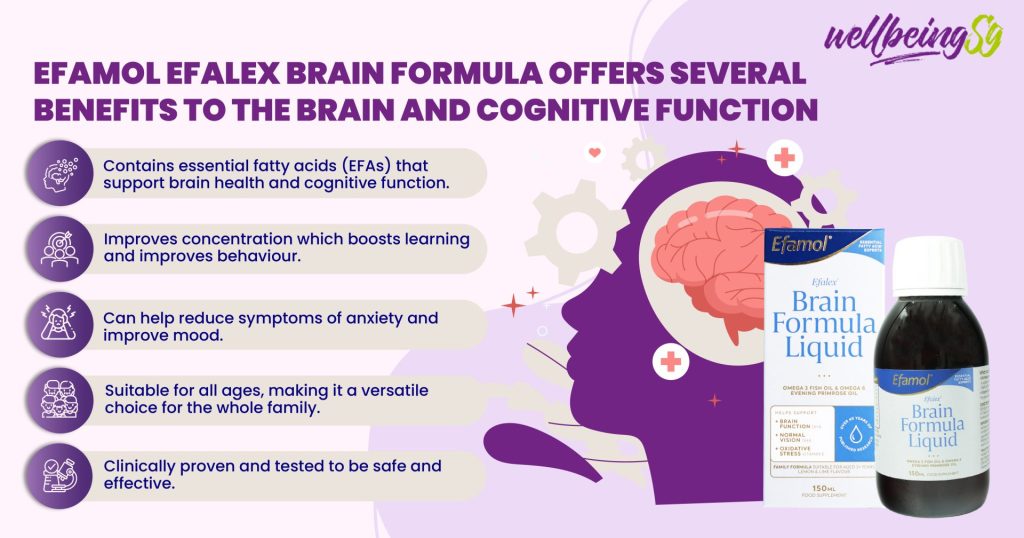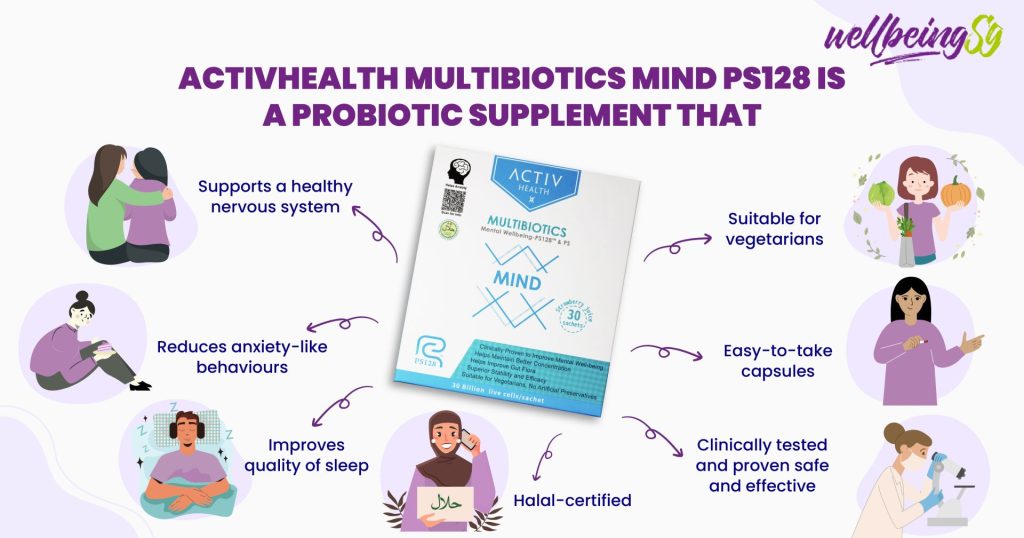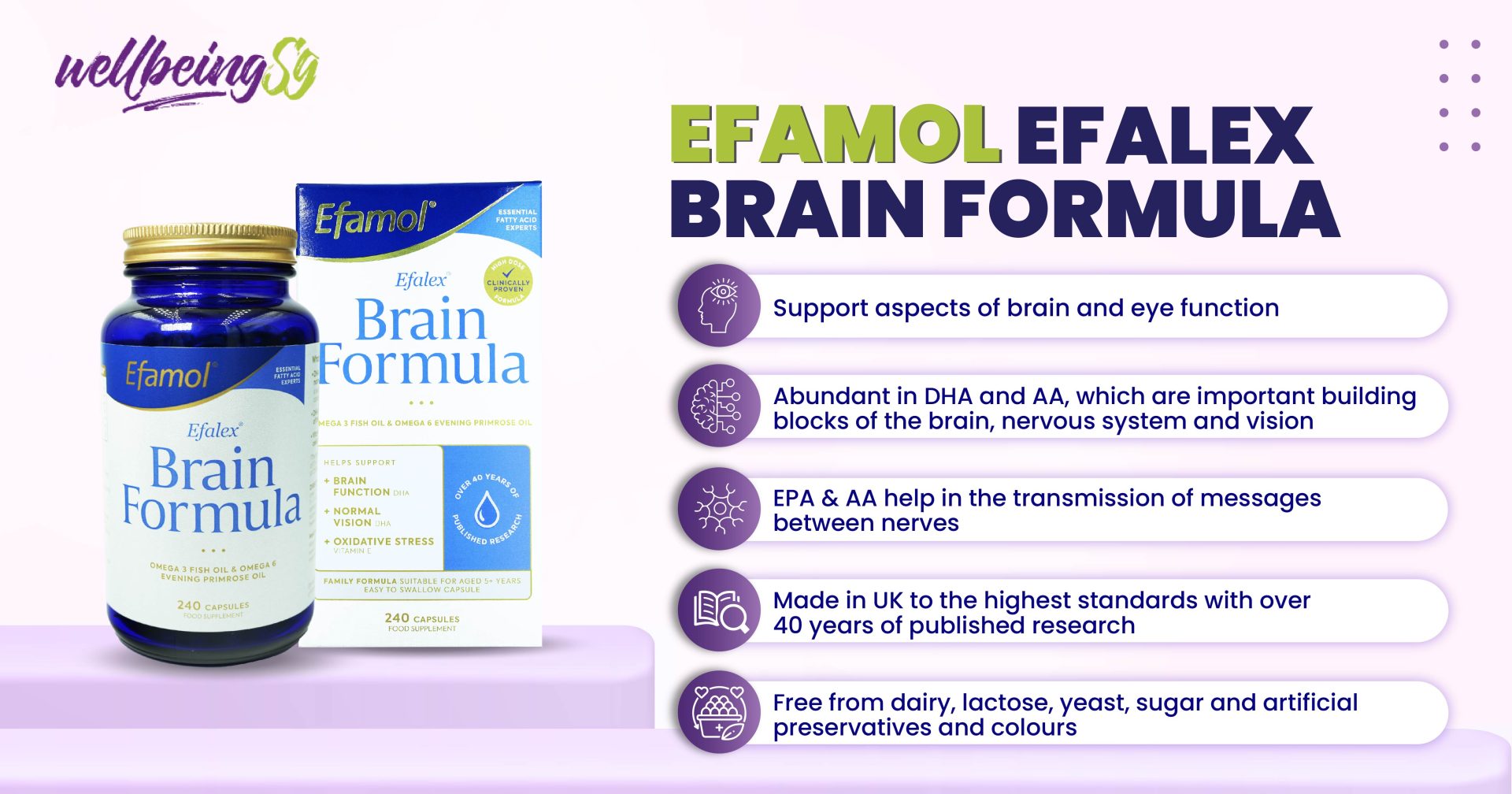6 Foods That Cause Anxiety and 6 Ways to Reduce It Naturally

Everybody experiences anxiety: it is a normal coping mechanism for the human body. Whether it’s worrying before a test or a job interview or hand-wringing over the state of the world, anxiety is our body’s triggered alert system, warning us of impending danger.
However, we were not meant to experience anxiety every day. Being on constant high alert wears our body down more easily, like using fuel reserves meant for emergencies as a substitute for normal power. When anxiety ends up interfering with our daily lives and relationships, it’s not normal anymore.
While Singapore is geographically protected from natural disasters and has an economic advantage compared to its neighbouring countries, 10% of the population still suffers from an anxiety disorder. There are many triggers for anxiety, but one that we can control is the food we eat.
Some foods are more likely to trigger anxiety. The most common culprits are:
Our bodies use sugar for quick boosts of energy, but if there’s too much of it, the energy will have nowhere to go but into overthinking and anxiety. At the same time, sugar is highly inflammatory, which is okay if you’re fighting against infection and disease, but having chronic low-level inflammation contributes to heart disease, diabetes and even depression. Sugar and processed foods can trigger pro-inflammatory messengers like cytokine, which is linked to anxiety and other mental disorders.
Ever get the shakes after too much coffee? While caffeine is helpful in keeping us awake, it stimulates the flight or fight response, keeping us on high alert. Add that to low-level anxiety and it becomes a recipe for sweating, a discomforting feeling of dread, and a palpitating heartbeat.
For those with celiac disease and intolerance of gluten, grains and bread can trigger an anxious episode. Anxiety is one of the symptoms of celiac disease and gluten allergy.
Artificial flavouring helps keep groceries for longer and helps recreate texture, taste and colour, but it also dumps a lot of chemicals in our diets. Transfat, MSG and aspartame are some of the most common artificial additives and they can trigger inflammation and anxiety.
Vegetable oil is high in Omega-6 fatty acids, which we need to help bad cholesterol, but overprocessing can break down the natural benefits of this nutrient, and can even become harmful in high doses. Processed vegetable oil that is pale and highly refined is no different from common cooking oil and is not that effective.
Red meats can be healthy but if they are pumped with hormones, antibiotics and fed with grain instead of their natural foods, it can become a hotbed of pro-inflammatory nutrients that can trigger anxiety.
Dealing with anxiety disorder requires a multistep approach. While medicine and therapy help in coping with anxiety, it will be much more effective if you’re working with a healthy body. Here are some ways to help your body deal with anxiety:
First, you need to avoid foods that trigger inflammation. This means substituting sugar and processed foods, as well as other trigger foods listed above, with healthier alternatives. Leafy greens, non-starchy vegetables, spices such as ginger, turmeric, rosemary, cinnamon and low glycemic index fruits such as berries and lemon can fulfill the nutrients we need without having to turn to highly processed meals. For proteins and healthy fats, turn to avocados, coconut oil, butter and clean proteins such as grass-fed beef, pasture-raised poultry, wild-caught fish and game for a healthier and more sustainable diet. Also good are nuts, seeds and fermented foods.
While foods that trigger our allergies are an obvious no on our grocery lists, foods that trigger our sensitivities are harder to pinpoint, especially because symptoms are often delayed in onset. The most common sensitivities are to milk and dairy, wheat and gluten, corn, eggs and sugar. If you’re sensitive to these foods, you’re likely to experience bloating, tiredness, weight gain and a persistent low mood. If you cannot avoid these foods or if you didn’t know that you’re sensitive to them, take enzymes like Digest Spectrum to ease symptoms.
It’s no surprise that good sleep can help us battle anxiety, but even getting a good night’s rest is a challenge if our days are filled with stress. Make sure to set a routine to get yourself ready for bed and practice relaxing activities like meditation, painting or listening to music to prime your body for rest.
The connection between our brains and stomachs is established in the gut-brain axis, and a fine balance of our unique gut flora contributes greatly to our moods. Make sure that your intestinal ecosystem of good and bad bacteria are doing okay by introducing prebiotic and probiotic foods in your diet, and supplement your intake with the right combination of probiotics present in ActivHealth Multibiotics Mind and Active.
Nothing beats exercise when it comes to stimulating your body into working properly. A simple walk around the neighbourhood in the morning does a lot of good: It promotes exercise and movement, primes you to take on the day, and it gives you a chance to absorb sunshine which is high in Vitamin D.
While most of the nutrients that our body needs can be found in the food we eat, we still need some help from supplements to fill in the gaps. For anxiety, best supplement your diet with anti-inflammatory supplements like Wileys Peak EPA. You can also gain more benefits by partnering it with Efalex for Omega 3 DHA that is good for better cognition, magnesium and calcium for nerve and muscle relaxation, and zinc and B complex as supporting minerals.
Find these supplements today at wellbeingsg.com.
A preliminary report: the role of omega-3 fatty acids in the management of Singaporean children with
Autism Spectrum Disorders. Weng Shih Jen, Ooi Yoon Phaik, Sung Min, Lambert Low, Jacqueline Seah, Jade Jang, Rebecca Ang, Alvin Liew, Lim Choon Guan, Sarah Teo, Koh Shiyun, Daniel Fung, Ooi et al, European J of Clinic Nutrition 25 Mar 2015
Psychotropic Effects of PS128 (Lactobacillus Plantarum) in early life stress and naïve adult mice. Yen Wen Liu et al, Elservier , Science Direct 2016
PS128 allevate symptoms of ASD in Taiwanese children, Randomised double blind placebo trial, Yen Wen Liu et al 2019
Yang,B, Wei,J et al Effects of regulating intestinal microbiota on anxiety symptoms: A systemic review, Gen Psychiatry, 2019 May 17;32(2)PMID;2063689
Nutritional Strategies to ease anxiety, Havard Health Publishing
Foods to avoid if you have anxiety or depression, WebMD
Boyle,NB, et al The Effects of magnesium supplementation on subjective anxiety and Stress – a systematic review
Nutrients 2017 May;9(5): 429.PMID:28445426
Aylett E et al Exercise in the treatment of clinical anxiety in general practice – a systematic review and meta-analysis
BMC Health Serv Res.2018;18 (1):559
Garcia-Escrivà et al. Real Invest Demenc 2014;56:21-29











